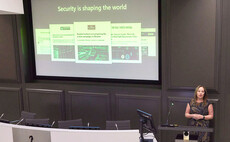Despite the risks, AI is 'ultimately the key portal that we have to pass through to realise the full dimensions of humanity's long-term potential,' argues Professor Nick Bostrom
If experts can successfully develop artificial intelligence (AI) with the same reasoning capability as people, it will be a "fundamental game-changer" representing the same level of human evolution...
To continue reading this article...
Join Computing
- Unlimited access to real-time news, analysis and opinion from the technology industry
- Receive important and breaking news in our daily newsletter
- Be the first to hear about our events and awards programmes
- Join live member only interviews with IT leaders at the ‘IT Lounge’; your chance to ask your burning tech questions and have them answered
- Access to the Computing Delta hub providing market intelligence and research
- Receive our members-only newsletter with exclusive opinion pieces from senior IT Leaders





















